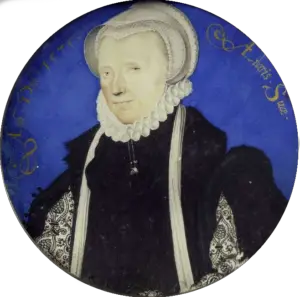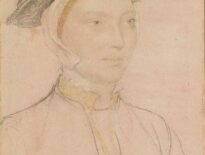 On this day in Tudor history, 19th February 1567, in the reign of Queen Elizabeth I, Margaret Douglas, Countess of Lennox, was informed of the murder of her son, Henry Stewart, Lord Darnley.
On this day in Tudor history, 19th February 1567, in the reign of Queen Elizabeth I, Margaret Douglas, Countess of Lennox, was informed of the murder of her son, Henry Stewart, Lord Darnley.
Darnley had been murdered nine days earlier at Kirk o' Field, Edinburgh, in the Royal Mile, just a few hundred yards from Holyrood House where his wife, Mary Queen of Scots, and baby son, the future James VI/I, were staying.
Margaret Douglas was in the Tower of London at the time. She’d been imprisoned in 1566 after Elizabeth I had heard news of Darnley's marriage to Mary, Queen of Scots. News of her son's murder was carried to her by William Cecil's wife, Mildred, and Lady William Howard.
The Spanish ambassador wrote:
"This Queen expresses sorrow at the death of the King, and she thinks that although he married against her wish yet as he was a royal personage and her cousin, the case is a very grave one, and she signifies her intention to punish the offenders. She sent to inform the King's mother of his death by the countess of Withington, the wife of the Lord Chamberlain, and the wife of Cecil. The mother was so grieved that it was necessary for the Queen to send her doctors to her. She has been taken out of the Tower, and placed in Sackville's house, where she arrived yesterday."
And William Cecil recorded that "The Queen's Majesty sent yesterday my Lady Howard and my wife to Lady Lennox in the Tower to open this matter unto her; who could not by any means be kept from such passion of mind as the horribleness of the fact did require."
Historian Rosalind K. Marshall writes that Margaret's visitors mistakenly told her that her husband, Lennox, had been killed too, although this was corrected later. Margaret was in such a state that Dr Huick, Dean of Westminster and one of the queen's physicians, was sent to her.
As the Spanish ambassador states, Margaret was soon released from the Tower.
Also on this day in Tudor history...



Love the tightrope walker, Edward must have enjoyed that immensely, he must however have yawned with boredom at the long speeches and solemnity of it all, but I have always thought of Edward as an old soul and judging by the seriousness of his nature, he maybe endured it a lot better than any average nine year old, Tracey Boorman remarks on his confidence which his siblings both possessed and which their father had in great measure, he soon began to assert himself as a ruler, and it was tragic that England lost him so young before he came into his prime, his realm never benefited from his rule, apart from the reform which began in Henry V111’s day, and which Edward was determined to finish, his hatred of catholics caused a schism between himself and his eldest sister and his early death caused much bloodshed.